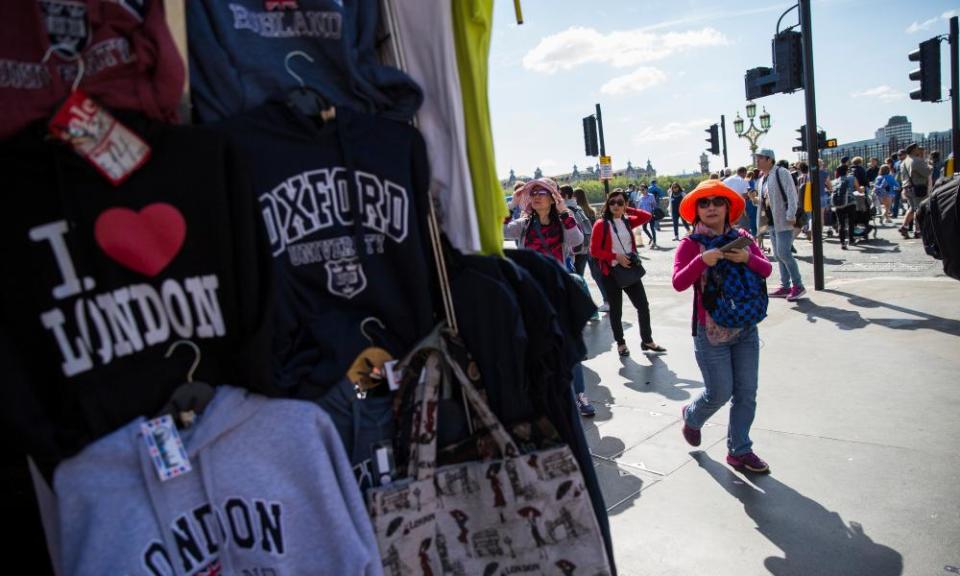Weak pound helps lure record number of overseas visitors to UK

Sterling’s plunge after the Brexit vote helped attract record numbers of overseas visitors to Britain last year, according to official figures.
The Office for National Statistics said visits to the UK by overseas residents reached 39.2m last year, while also finding more Brits than ever before heading abroad – suggesting hopes for a staycation boom may have been overblown.
Helping hotels, travel companies and tourist attractions across the country during a broader slowdown for the British economy in 2017, the number of visits by holidaymakers, business travellers and people coming to see friends and family rose from 37.6m in 2016.
VisitBritain said the country benefited from higher numbers of people travelling from China, the US, Australia and the Gulf states, while overseas travellers opened their wallets to spend more than £24.5bn. While London remains the most popular destination, visits outside the capital reached a record high of 16.5m last year, with tourists spending £7.8bn in other UK locations.
Aside from direct spending, the government’s tourism authority believes visitors to the UK generate a total of £127bn for the economy each year. Alongside the rise in numbers from further afield, there was also an increase in the number of Europeans coming to the UK. Europe remains the most important market for the British tourism industry, accounting for more than two-thirds of all visitors.
France was the number one country for visits to the UK, with almost 4m last year.
Despite significant pressure on household budgets, with Britons facing falling real wages and the highest levels of inflation for five years triggered by the Brexit vote, the ONS said more Brits than ever before jetted off on holiday, went on business trips or visited friends and family abroad.
There had been hopes of a staycation boom, as the weak pound made staying on a campsite in Cornwall or bothy in Scotland more attractive. However, the ONS said the number of visits overseas by UK residents rose to 72.8m – an increase of 3% and nearly double the number of visits to the UK from overseas. Britons spent more than £44.8bn while on visits abroad.
However, the weak pound does appear to have discouraged Brits from shelling out for long-haul trips to destinations like the US, with the figures showing the first drop in overall visits from Britain for several years. In the first year of Donald Trump’s presidency, visits from Britain fell to 3.4m, from almost 3.6m in 2016.
Spain accounted for much of the increase in trips abroad, with visits to the most popular British holiday destination rising by more than a million to reach almost 15.9m last year. Holidaymakers and other British travellers spent more than £8.6bn in Spanish resorts, cities and regions last year.
Sarah Coles, a personal finance analyst at Hargreaves Lansdown, said: “It goes to show that even when we are tightening our belts, we are unwilling to give up our holidays.”

 Yahoo Finance
Yahoo Finance 